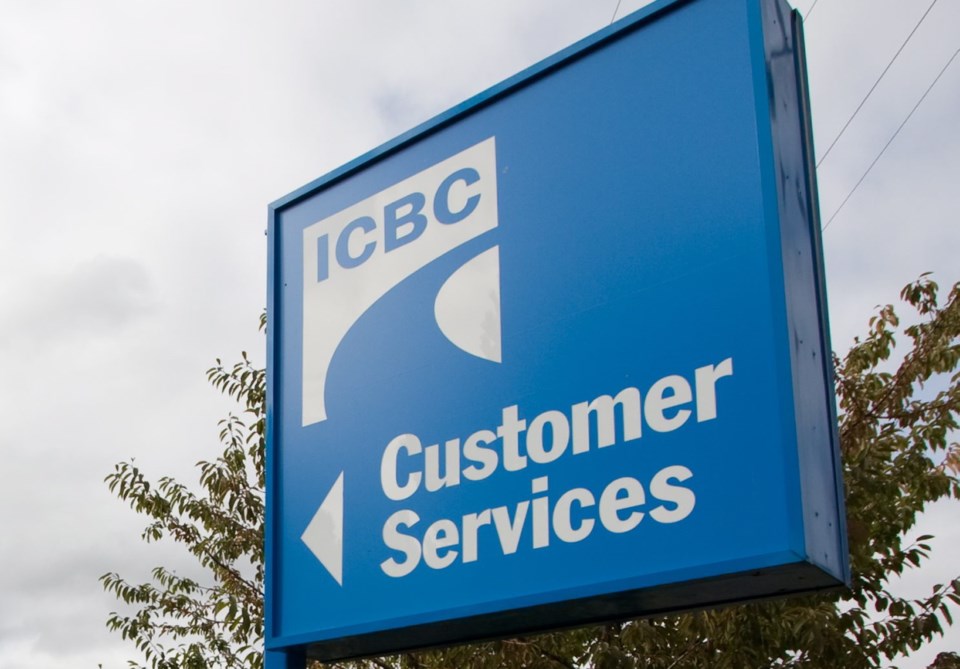The B.C. government is betting big that its overhauls of ICBC will dig the public auto insurer out of a $1-billion hole, with the 2019 budget predicting a profit within two years. However, experts warn that legal challenges to the proposed changes could temper that optimism.
This month, the Insurance Corp. of B.C. revealed it suffered a net loss of $860 million in the first nine months of its fiscal year, putting it on track to lose $1.18 billion for the year.
The losses are much higher than the $890 million ICBC anticipated it would lose for the fiscal year ending March 31.
The NDP government’s second full budget predicts a dramatic turnaround for ICBC, with losses of $50 million for the year ending March 2020. The insurance agency will be back in the black by 2021 with a profit of $86 million that will rise to $148 million in 2022, according to the budget.
Major changes to the way ICBC deals with crash victims take effect April 1, including a $5,500 cap on minor injury claims and a dispute resolution process to divert more minor claims away from the courts.
ICBC CEO Nicolas Jimenez said those reforms could save the insurance provider $1 billion per year. As well, insurance premiums are set to go up by 6.3 per cent on April 1.
“Everything changes for us after April 1 in terms of how we handle injury claims,” Jimenez told the Times Colonist. “And that’s why we know that the changes we’ve put in place will see material differences in the cost-drivers that have put a ton of pressure on our business in the last one to two years.”
When asked Tuesday what is fuelling the confidence in ICBC, Finance Minister Carole James pointed to the changes and said ICBC is working to clear outstanding cases.
It likely will take five to seven years to clear the backlog of 110,000 outstanding injury claims, Jimenez said, which will be settled under current rules.
The changes to how minor-injury claims are handled could face a legal challenge from the Trial Lawyers Association of B.C., University of British Columbia economics professor Werner Antweiler said.
Minor-injury caps seem to be on solid legal ground, Antweiler said, pointing to a failed constitutional challenge to similar measures introduced in Alberta in 2004.
“I think there’s a very good fighting chance for ICBC and the provincial government that they will persevere in that direction,” Antweiler said.
As the head of an insurance agency, Jimenez said he’s well aware of risks that could derail the sunny financial forecast.
“[A legal challenge] would be very troubling for how we expect our cost picture to change,” he said. “If a legal challenge is successful, obviously we have to go back to the drawing board.”
The government can dip into a $750-million contingency fund in the event ICBC doesn’t become as profitable as predicted.
The auto insurance changes were brought in by Attorney General David Eby on Feb. 7 in an attempt to address what he called a financial “dumpster fire” at ICBC, for which he blamed the previous Liberal government.
ICBC lost $1.3 billion in the fiscal year ending March 2018.
Eby also announced that the province will limit the number of “adversarial experts” who can testify in personal injury claims in an attempt to reduce skyrocketing legal fees.
People injured in car crashes will be able to use one expert and one report for fast-track claims under $100,000, and up to three experts and reports for all other claims. Expert reports typically include statements from medical experts and can address wage loss, future wage loss and future medical care.
Eby has said the changes to the B.C. Supreme Court civil rules regulation could save “in excess of $400 million” by encouraging earlier settlements and reducing costs of settling vehicle injury claims.
However, those savings are largely dependent on judges, who have the power to permit additional court-appointed or joint experts at their discretion.
Antweiler said it could take longer than the government expects for reforms to turn the tide at ICBC.
“With the problems that have occurred over the last three years, there’s a lot of momentum to set it on the right track. But that train, before it slows down and reverses, it needs to brake first,” he said.



